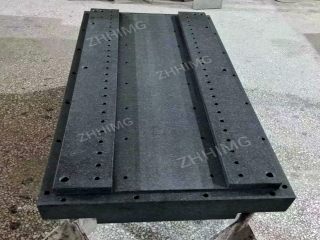# Precision Ceramic Components: Better Than Granite
In the realm of engineering and manufacturing, the choice of materials can significantly impact the performance and longevity of components. While granite has long been revered for its durability and stability, precision ceramic components are emerging as a superior alternative.
Precision ceramic components offer several advantages over granite, making them an increasingly popular choice in various industries. One of the most notable benefits is their exceptional hardness. Ceramics are inherently more resistant to wear and tear compared to granite, which means they can withstand harsher conditions without degrading. This property is particularly advantageous in applications where precision and durability are paramount, such as in aerospace, automotive, and medical devices.
Another key advantage of precision ceramic components is their lightweight nature. While granite is heavy and cumbersome, ceramics can be engineered to provide the same level of strength and stability without the added weight. This characteristic not only facilitates easier handling and installation but also contributes to overall energy efficiency in applications where weight reduction is critical.
Moreover, precision ceramics exhibit superior thermal stability and resistance to thermal shock. Unlike granite, which can crack under extreme temperature fluctuations, ceramics maintain their integrity, making them ideal for high-temperature applications. This thermal resilience ensures that precision ceramic components can perform reliably in environments that would typically challenge other materials.
Additionally, ceramics are chemically inert, meaning they are less likely to react with other substances. This property is particularly beneficial in industries such as pharmaceuticals and food processing, where contamination is a significant concern.
In conclusion, while granite has its merits, precision ceramic components offer a range of advantages that make them a better choice for many applications. Their hardness, lightweight nature, thermal stability, and chemical resistance position them as a leading material in modern manufacturing, paving the way for enhanced performance and longevity in precision engineering.
Post time: Oct-29-2024

